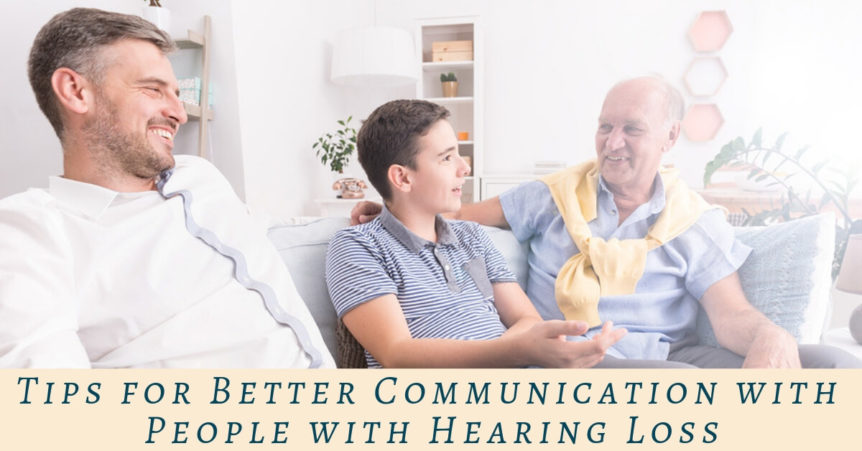- The Harm of Smoking to the Ears - April 9, 2025
- The Importance of Exercise for Hearing Health - March 11, 2025
- Movie Theaters and Hearing Aids - February 13, 2025
[Individuals suffering from hearing loss may find communicating with others to be stressful, frustrating, and discomforting. While there is a portion of those with hearing loss who are quite open about their struggles by asking you to make adjustments to help during a conversation, many people in fact either don’t realize that their hearing is declining or they choose not to share those details due to self-doubt or societal stigmas. This ultimately leads to fractures in communication with different types of people in all different types of settings. Even those who wear hearing aids cannot fully restore their hearing and may face communication challenges.
As you can see, hearing loss can be a challenge for many of those who face it. Conversations entail much focus, energy, patience, so it’s important to keep this in mind when communicating with people with hearing loss. Below are some tips that you can do to better facilitate better communication with people with hearing loss.
Gain the listener’s attention. A great first tip is to gain the listener’s attention before you start the conversation. This can be done by saying their name. If that person has better hearing in one ear, address their name on that dominant side. Furthermore, you can consider safely and lightly tapping the listener’s arm or shoulder to gain their attention. By gaining the listener’s attention first, it allows them to be prepared to listen and not miss the first part of the conversation.
Make sure you are face-to-face and maintain eye contact. It is important to be face-to-face with the hard of hearing listener and to also maintain direct eye contact with them. Studies have shown that aside from just verbal cues, those with hearing loss also pay close attention to facial expressions or body language as a component of following the conversation. Body language or facial expressions allows for the listener to “see” a person’s joy, excitement, or frustration for example.
Keep things away from your face. While engaged in speech, it’s important to keep your hands away from your face as it allows the listener to identify visual cues of facial expressions. Further, blocking your face with your hands disrupts the volume and clarity of what you are addressing. People with hearing loss use something called speechreading to assist them in improving speech perception. What this means is that those hard of hearing rely on the sight of words rather than the sounds. As a speaker, it is crucial to not overexaggerate your talking in addition to not obstructing the field of view to your face or mouth.
Speak naturally. We may think that when engaged in conversation with those hard of hearing, we have to overexaggerate our speech or speak extremely loudly. What’s important to know is that we should speak naturally and distinctly as we normally would with anyone else. Shouting actually distorts words which makes it more difficult to understand. Mumbling also poses challenges for any listener, hearing loss or not. The rhythm of speech is equally important; try not to speed up or slow down what you are saying. Rather than slowing down, pausing allows the listener to process what is being communicated.
Rephrase instead of repeating. If you’re engaged in conversation with an individual with hearing loss and they have difficulty understanding what you’re saying, repeat it just once. If they still have problems comprehending, try rephrasing what you initially said. Try using different words with the same meaning to communicate the idea. For example, “I am going to the cinema.” Repeat it once and then rephrase. “I am going to the movie theater.” Often times, the listener may just not understand a specific word within the sentence, so you could ask what phrase or word the listener did not understand. For example, “cinema” wasn’t comprehended, so just repeat the word again.
Talk away from background noise. Background noise often interviews with the clarity of hearing for those facing hearing loss. As such, try to reduce background noises when speaking with someone hard of hearing. If there’s a TV or radio on, turn it off. You can also suggest moving to a quieter space away from the noise source to continue the conversation. If you’re out and about with someone with hearing loss, try to find seating the farthest away from where loud noises emanate.
Get a Hearing Test Today with Better Hearing Center!
If you or a loved one is facing hearing loss, the best option to improve communication and connection is getting a hearing test. A baseline hearing test will be able to identify at what level your hearing loss is at and track it over time. If found to have hearing loss, our hearing health specialists at Better Hearing Center will be able to provide you with options to improve your hearing loss today!

